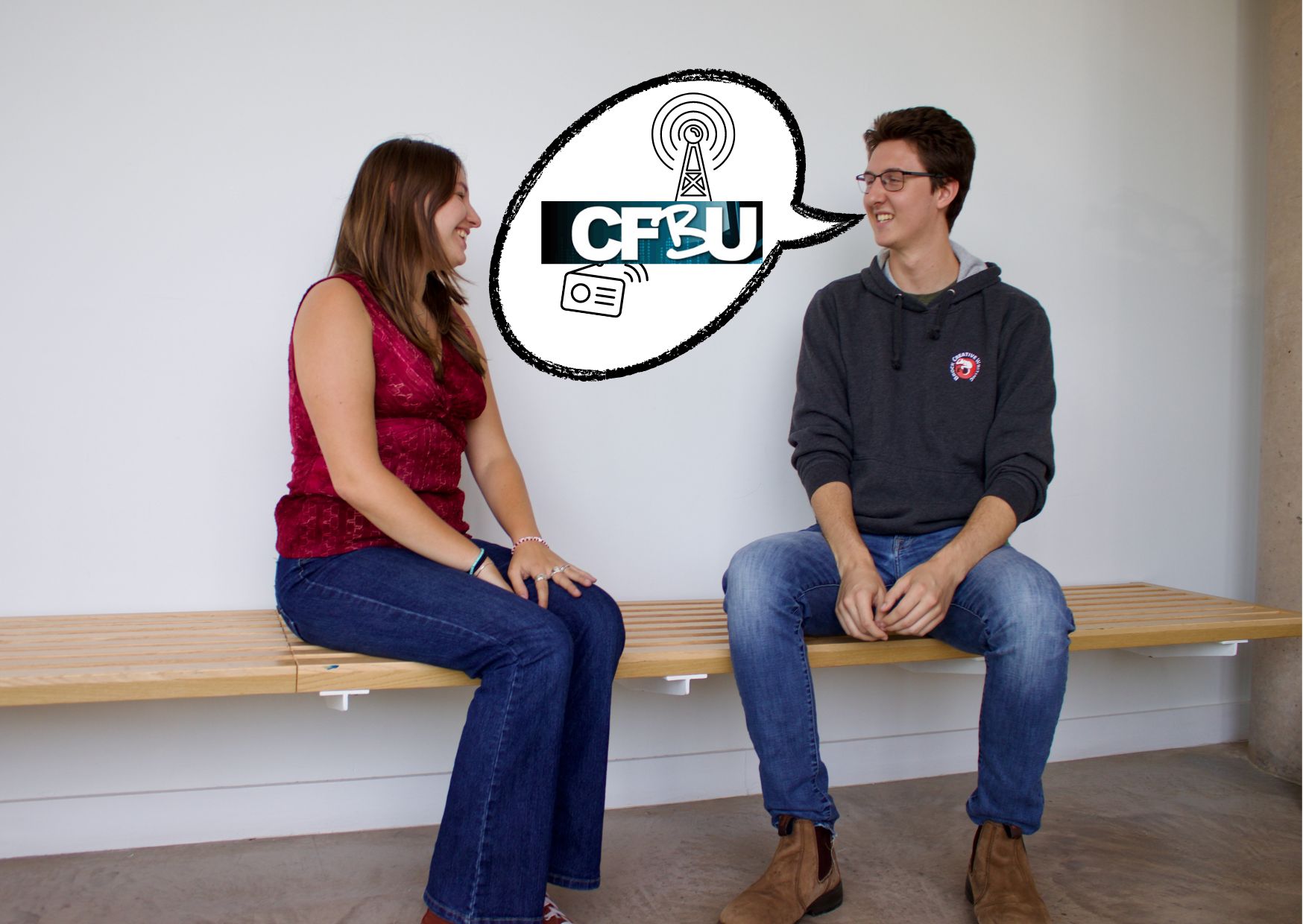CFBU 103.7 FM, Brock Radio, is one of Brock’s oldest media outlets; despite many hardships, they continue to produce independent and alternative material.
Broadcasting from the roof of Schmon Tower, Brock Radio features a plethora of specialty radio shows curated by students and other community members. One may find any number of genres playing when they tune in to the station including pop, rock, dance, electronic, rap, jazz, blues, folk, punk, metal, reggae, calypso, Celtic, prog rock and more — just not Top 40 songs.
“CFBU provides an alternative to mainstream media, free from government and corporate influence,” said Deborah Cartmer, Brock Radio Program Director. “We help foster and promote independent music and provide an opportunity for under-represented and marginalized groups to have their voices heard.”
The station also features talk shows that cover labour and environmental issues, social inequality, graduate research, arts and culture, creative writing, sustainability and more.
Students may be unfamiliar with Brock Radio, but they are not a new presence in the community. In fact, while the first-ever radio station at Brock was introduced in 1970, CFBU has been on the FM dial since 1997, providing their media services to St. Catharines for 27 mostly consecutive years.
When it was established, the station was located at Brock’s Symphony House and funded through the student union. That setup lasted for about five years until 2002 until “BUSU shut us down and took all our stuff away,” said Cartmer. The lack of funds forced CFBU to go on a brief hiatus which was the only time Brock Radio has stopped broadcasting in its history.
However, they were able to get their supplies back and resume their progress in February 2003, at least until the university usurped their space again, at which point Brock Radio moved to what would be its longest-lasting home: the downtown student residence in the old Welland House Hotel.
They stayed there for over a decade, during which time the $1.50 per credit fee allotted to them through BUSU was terminated, leaving them without funding.
In 2018, Brock Radio was notified by the owner of the Welland House Hotel that everyone needed to vacate so they could redevelop the property. They moved temporarily to a vacant storefront on Queen Street.
It was here that student volunteers tried to get their funding reinstated via a BUSU referendum. However, they were unsuccessful.
By the summer of 2019, they decided that the space was not suitable according to Cartmer, and moved to remote work as they took their time finding a location.
“We felt awful because radio is about being live and having fun in the studio,” said Cartmer, but she emphasises that “the show goes on, no matter where we’re at or what we’re up to.”
When the COVID-19 pandemic struck, Brock Radio found themselves prepared, having already made the transition to working online and preventing themselves from shutting down.
In 2021, the Welland House Hotel burned down, making impossible the chance that they could ever return.
Today, Brock Radio is still searching for a permanent home, but without the funds to acquire and maintain such a setting, that is more of a pipe dream than anything else. Still, they have found support from and a level of mobilization in the Marilyn I. Walker School of Fine and Performing Arts.
“Students can tune in to discover music that is new to them and to get connected to the community,” said Cartmer. “Brock University was originally created to serve the local community, and we are continuing that tradition. Our show hosts are students and community members sharing their love of music and compassion with others.”
While Cartmer acknowledged that streaming is a big part of the music scene today, she’s quick to add that not only does streaming underpay artists but it’s more impersonal. Listening to the radio is a way to discover new music through shows that are personal to their creators. CFBU DJs can introduce you to new genres and artists that you may never have considered before.
For example, Mya Thompson, the Student Representative on Brock Radio’s board, runs a weekly show featuring music she considers “groovy,” which can encompass many different genres, feature local artists and more.
“I think it’s a great opportunity to seek out new music and also hear what your peers are listening to,” said Thompson. “It’s a great way to dip your toe into something that you might not have found otherwise.”
Cartmer explains that listening to Brock Radio is one of the best ways to support Brock Radio, aside from donating or getting involved yourself.
“CFBU, Brock Radio, has always and will continue to provide an amazing experiential learning opportunity for students,” said Cartmer. “Volunteers learn tech and producing skills, but they also develop public speaking skills, self-confidence and a sense of who they are. That is why we continue to do what we do.”
Students can reach out to Cartmer to get involved with Brock Radio and host their own show. “We don’t tell people at all what to do in their shows,” said Cartmer, although a pitch must be submitted and approved by the program committee to ensure the idea is a good fit with CFBU.
For readers interested in checking out Brock Radio, you can tune into their frequency at CFBU 103.7 FM.
A schedule of Brock Radio’s weekly shows, as well as links to donate and listen to their digital stream, can be found at cfbu.ca. To get connected with Brock Radio with inquiries into hosting a show, you can email Deborah Cartmer at pd@cfbu.ca.

